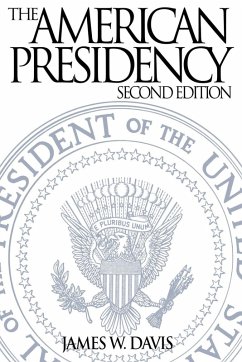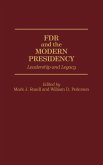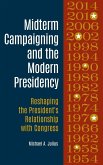This is a thoroughly revised, in-depth analysis of the American presidency by a major scholar in the field. The main goal of the text is to explain how the president's ability to implement policy is circumscribed by several major factors: *the Madisonian separation of powers; *the decentralized power structure in Congress; *the number of cross-party coalitions needed to pass legislation; *a slow-moving federal bureaucracy; and *the powerful influence of special interest groups opposed to many presidential initiatives. Included in this second edition is coverage of the first two years of the Clinton presidency and a special chapter on the emergence of the presidential branch-the White House staff-and its displacement of the cabinet and the executive departments as the foremost decision-making agents in the federal government (a unique chapter not found in other texts). Since highly unstable relations between the president and congress have become the hallmark of our national government, especially in this era of divided government, a new chapter on the president and congress has been added to the text. The growing role of the vice president, an original chapter in the first edition, has been expanded and updated to include the Gore vice presidency. The chapter on proposed reforms of the presidency received wide approval in the first edition. In the second edition special attention is devoted to the proposal to abolish the Electoral College and replace it with direct election of the president. This edition focuses heavily on the activist presidential leadership of the modern presidency, but notes its perishable nature. High presidential approval ratings, as George Bush demonstrated, cannot be stockpiled or deposited in the bank, to be drawn upon later. Along the way the author makes several major points: 1. the excessive demands that the American public imposes on its presidents threaten to turn the nation's highest office into a series of one-term presidents; 2. the decline of political parties as vehicles for mobilizing presidential support has forced the nation's chief executive to go over the heads of congress and directly to the public to solicit support for his policies; and 3. the emerging dangers of electronic democracy and national referenda and the potential rise of a plebiscitary president all pose more imminent threats to our shared powers system than most presidential-watchers have been willing to concede.
Hinweis: Dieser Artikel kann nur an eine deutsche Lieferadresse ausgeliefert werden.
Hinweis: Dieser Artikel kann nur an eine deutsche Lieferadresse ausgeliefert werden.








